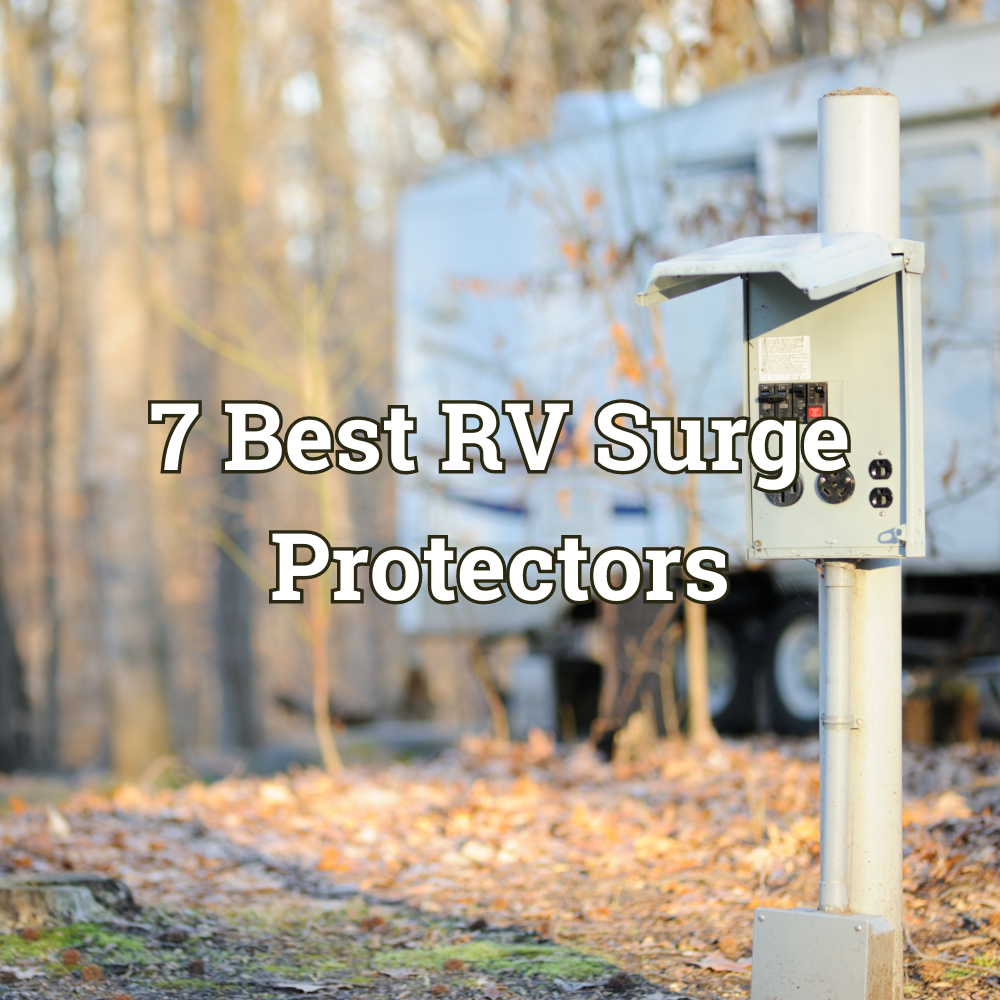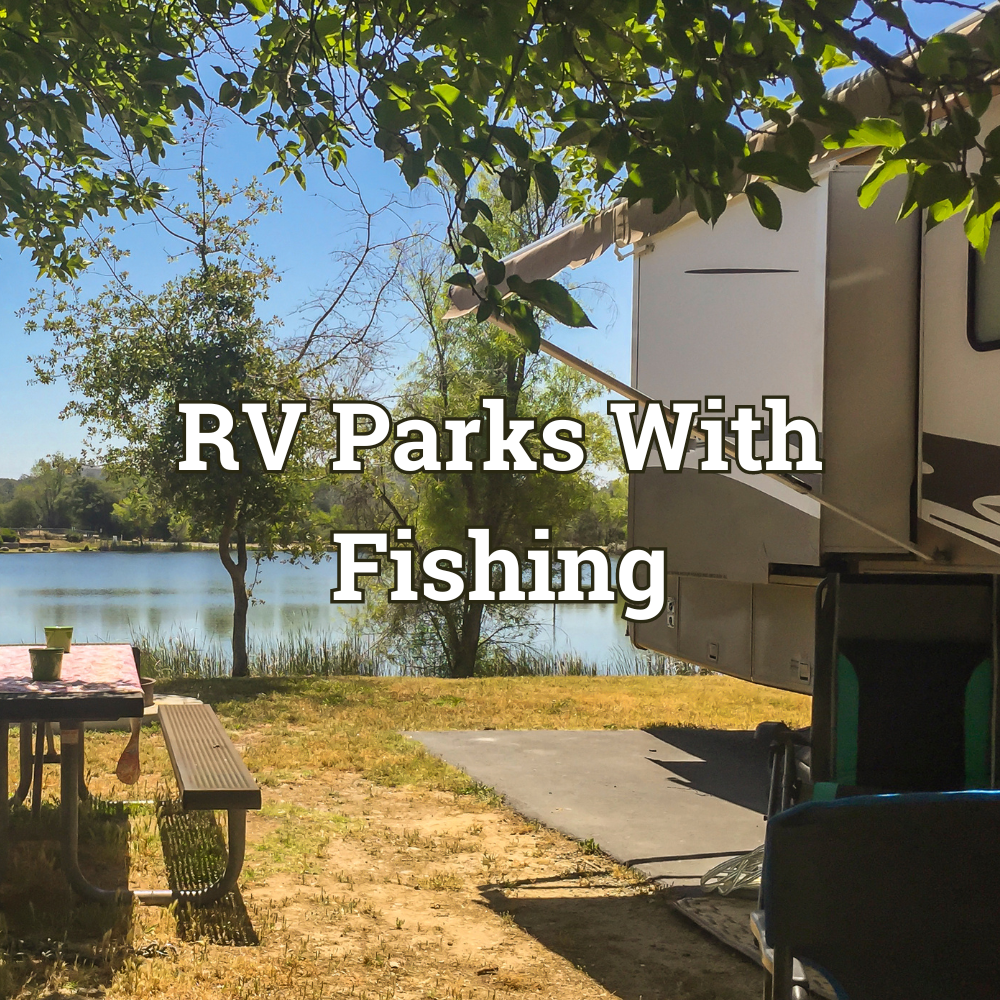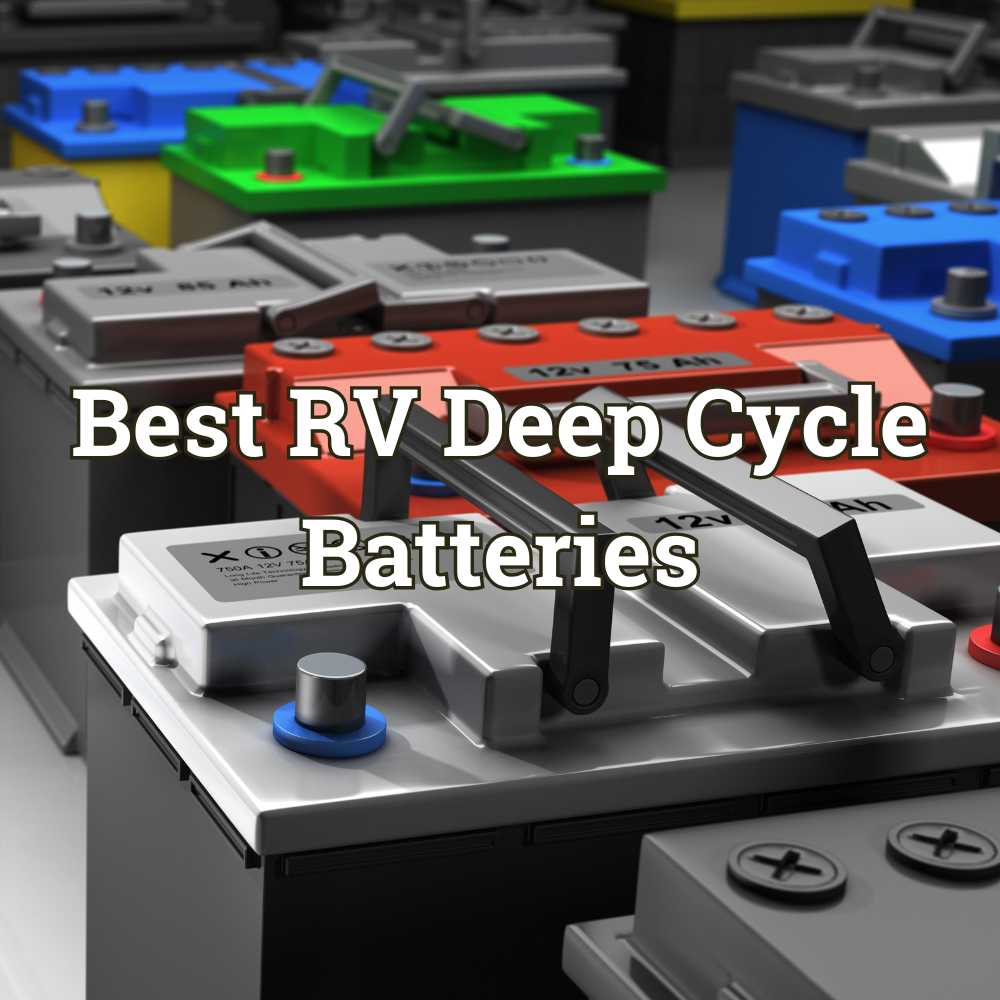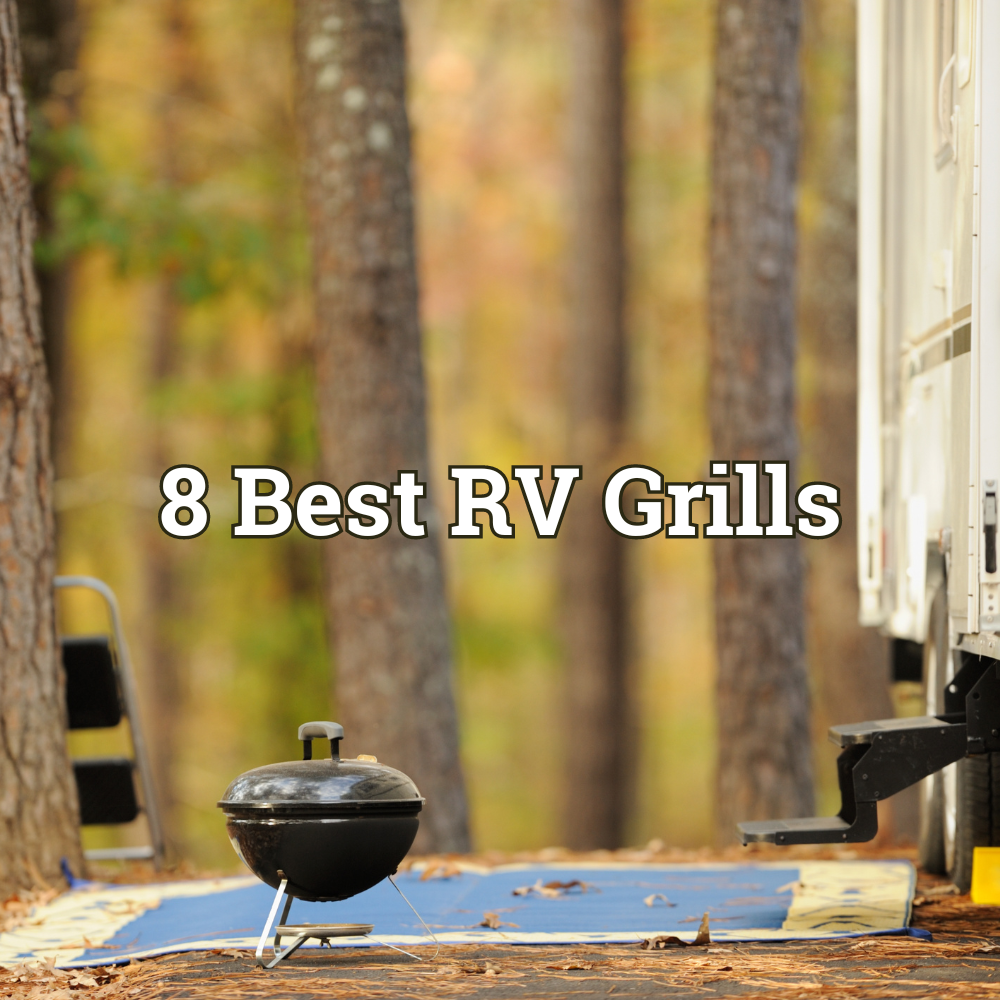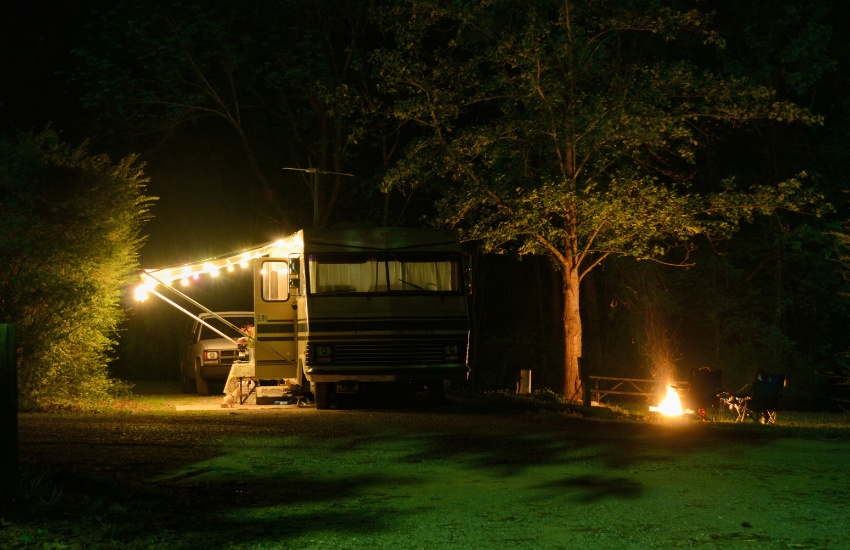
There are definitely a few RV essentials that will make for a much smoother trip.
As you make more trips, you will get to know what you regard as an essential item for your RV. Hopefully I’ll give you an idea on what you might need to build your own list of RV essentials.
I’ve compiled this list from my own experiences and from the exploits of friends and fellow RVers.
Electrical
Surge Protector
I’d definitely consider a surge protector as an RV essential.
A good surge protector will safeguard the delicate electricals in your camper. This device will give you peace of mind when plugging into sketchy looking campground pedestals.
Although called a surge protector, electrical power surges are quite rare, and most units are actually a complete electrical management system (EMS).
If you want to read more about surge protectors, please read my review of the best RV surge protectors.
Extension Cord
If you don’t have one already, you’re likely going to need an extension power cord.
Most RVs will have a supplied 25 ft power cord as standard, but in my experience this is sometimes not enough.
Having an extension cord will allow you the freedom to position your camper however you like in your allocated plot at the campground. If you have an extension cord you won’t have to take into account the distance from the power pedestal to your RV.
Choose a cord that matches the power rating of your RV (30 or 50 amp).
This one is 30 amp, you can find the 50 amp version here.
Water
Drinking Water Hose
If you’ve ever drunk from a regular water hose you will remember that distinctive plastic-rubber taste. The reason for that taste is the chemicals that are leaching into the water via the inside of the hose. Yep, nasty. Drinking water hoses are made of pvc and won’t do this.
This is a 35 ft long, super heavy duty, “no kink” design drinking water hose.
It won’t start to break down if left in direct sunlight for long periods and also has nickel plated fittings.
If you’re planning on cold weather RVing you may want to consider a heated water hose.
Tip: Buy a small packet of good quality hose washers, the hose washers supplied are often not the best.
Water Filter
A water filter is a relatively inexpensive item, and will make a huge difference in the water quality in your RV.
A water filter will remove sediments, chlorine, odors and other bad tastes. You need to keep as much sediment out of your camper plumbing as possible to prevent issues later on.
This filter is a replaceable item, and will generally last a camping season (about 3 months).
It comes with a short hose attachment with a flexible hose protector for easier connection to a spigot.
You will definitely notice that your coffee tastes much better in the morning.
Water Pressure Regulator
Water pressure can be a bit of an issue at some campgrounds, it can vary a lot.
Maximum regulation pressure on a residential system should not exceed 80 psi. If a campground is running that kind of pressure you will likely cause some damage to your RV plumbing.
Most campgrounds and RV parks are well below that, but to be safe, I always connect a water pressure regulator to the spigot before connecting anything else.
I set my water pressure regulator to around 50 psi which is about right for most RVs.
Sewer Hose Kit
If you need to dump gray or black water, you’re going to need a sewer hose.
This RhinoFlex hose from Camco is one of the better ones available on the market.
It is wire reinforced and extendable, and will mold into any shape you want.
One of the great things about this sewer hose is that it is designed to fit into a standard 4” RV square fender. No nasty sewer hoses in boxes or in storage compartments of the RV.
Remember you’ll need another water hose for washing out before packing it away.
Hose Repair Tape
There’s nothing worse than a water leak in your camper. Water can cause a lot of damage to floors, carpets and to the inside of cupboards.
This self-fusing repair tape will (temporarily) fix just about any water leak until you can make a more permanent repair. I have “temporarily fixed” many leaks with this stuff, plenty of them are still there.. 🙂
Carrying a roll of this repair tape could someday save your trip.
Set-Up
Chocks
If you own a travel trailer you will know all about “the bounce”.
No matter how well you think you have jacked and leveled everything up, you seem to get a little bit of rocking or bouncing. Not with these chocks.
If you chock the wheels hard with these heavy duty chocks you notice a big difference.
The chocks are made of heavy duty gripping rubber, have handles for easy removal and are decently small enough to stow easily.
Jacking Blocks
A good quality jacking block is a good idea.
A lot of RVers I know use one of these at the front, under the tongue jack.
Tongue jacks are always much more stable when extended as little as possible, so getting some extra height (if you need it) will help keep the extension to a minimum.
If you have a lot of clearance under your RV, you may decide you need one for each corner as well. This all depends on the size and style of your RV.
Leveling Blocks
Leveling blocks are always a great thing for setting up your camper.
Use them under the leveling jacks on your trailer. They can also be stacked in an interlocking pyramid style so you drive a motorhome onto them.
Each block is around 8 inches square and will add about an inch in height.
You will get 10 in a nice zippered bag.
Emergency Kit
Bug Spray
Those damn no-see-ums and other tiny biting stuff can totally ruin a trip away.
I do a lot of fishing, so I spend a fair bit of time in and around biting stuff habitat.
A good bug spray will always be on my list of RV essentials.
A bug spray loaded with Deet is my usual go-to, but if you’re not a fan of the chemicals, there are plenty of natural options.
Fire Extinguisher
A fire extinguisher is an obvious and necessary item to have in your RV.
Although it is now a legal requirement on newer model RVs, it’s highly recommended by the NFPA (National Fire Protection Association) to have a class B:C extinguisher on board.
This article on RV fire safety from The National Park Service is well worth a read.
Depending on the size of your RV, it’s a good idea to have more than one located in strategic places.
Shovel
I think a shovel is a good thing to have on hand.
A shovel might not be the first thing that you think of as an RV essential, but you’ll be amazed how much use you get out of such a simple item.
I have a collapsible one like this, and have used it for all manner of tasks.
They are great when trying to level the camper, clearing scrub when boondocking, getting kindling sorted for the firepit, propping stuff up, the list goes on..
Gloves
A good set of gloves is a really good idea.
Spend any time RVing and you will skin your knuckles, pinch your fingers, slip whilst tightening something up.. You can keep all this to a minimum by wearing a good pair of gloves when doing any of the manual stuff.
They’re also essential when handling sewer hoses etc.
I like to use these winter work gloves as they are thick and waterproof.
Repairs
Toolkit
A toolkit of some kind is certainly an RV essential.
When you own an RV you’ll find that you will soon become a plumber, electrician, WiFi expert, and a general all round “fixer of stuff”.
Having a decent toolkit is definitely a must. You could start with an all round kit like this, or you can build a kit of your own that will suit your particular RV.
Either way, a good selection of tools is a good idea.
Head Torch
A good head torch is something I couldn’t be without.
Way more useful than a regular hand torch, you have your hands free to do whatever you need to do when you need some light.
Battery operated ones are fine, but I much prefer these USB rechargeable units as they are way more convenient.
You will get around 30 hours light on a full charge and they are waterproof as well.
Multi Tool
I have a Leatherman multi-tool that was given to me as a gift over 25 years ago.
I’ve looked after it and it still works perfectly. Having something like a multi tool will come in very useful for all kinds of little tasks around your camper.
There are many brands of multi tool but the Leatherman takes it for me. Made in the USA for the last 40 years, it’s made of stainless steel and has a 25 year guarantee.
Duct Tape
Do not leave home without a couple of rolls of this stuff. NASA regularly uses duct tape for emergency repairs!
Duct tape is without doubt the universal “fix all”. It will stick to virtually anything, will repair holes in fabric, lash things together and generally save the day when nothing else seems to work.
It’s waterproof as well so it is perfectly capable of temporarily sealing anything “leaky”.
Ok, that rounds up my list of what I would consider RV essentials.
One last tip:
Stow a spare set of trailer keys somewhere in your tow vehicle, and stow a spare set of tow vehicle keys in the trailer.
One day, you’ll be glad you did.
Please also see my other RV equipment reviews.





















